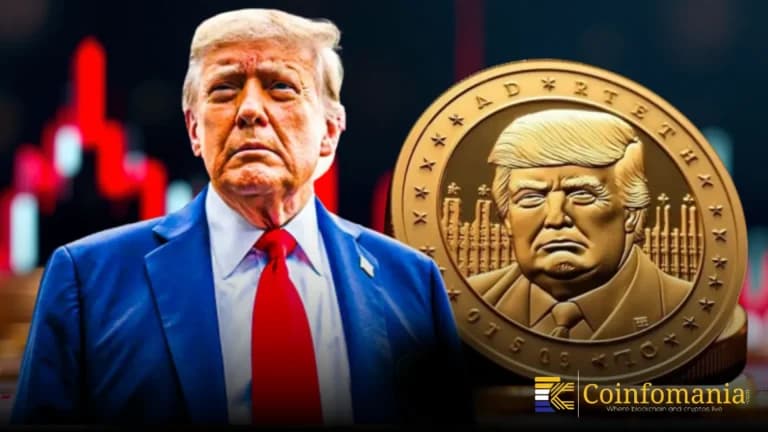Indian Mutual Funds Pour $40B Into Stocks as Foreign Investors Exit
Domestic funds bought nearly $40 billion in Indian equities as foreign investors trimmed exposure amid global uncertainty.

Quick Take
Summary is AI generated, newsroom reviewed.
Indian mutual funds invested $40B in local stocks over the past year, offsetting heavy foreign outflows.
Record SIP inflows show rising retail confidence, with investors backing India's long-term economic outlook.
Strong domestic participation is reshaping market dynamics, reducing volatility and dependence on global capital.
Indian mutual funds have sharply increased their presence in the stock market over the last year. They bought nearly $40 billion worth of local equities between July 2023 and June 2024. This domestic inflow helped cushion the market against consistent foreign selling. Bloomberg data shows mutual funds purchased $39.5 billion in Indian stocks during the 12 months. While foreign investors sold nearly $14.3 billion worth of shares.
While global capital moved out, local investors stepped up and filled the gap. Systematic investment plans, or SIPs, drove a large part of this domestic surge. These monthly contributions from retail investors have become the backbone of mutual fund inflows. In May, SIP collections hit a record high. It reflects growing interest from individuals in equity-linked savings. Despite market volatility, Indian investors continued to stay invested.
India’s Retail Crowd Leans Into the Market Rally
The steady rise in local investment shows growing confidence in India’s economic story. Investors aren’t just chasing returns; they are backing what they see as solid fundamentals. Strong GDP growth, consistent corporate profits, and rising consumer demand give them reasons to stay in. For many retail investors, equities have become more than a short-term trade. They are now a long-term path to building wealth. Mutual funds offer structure, clear reporting, and the reassurance of professional management.
As more people move into formal savings and financial planning, participation in mutual funds continues to climb. Fund managers say domestic buying has also helped reduce sharp swings caused by external shocks. In the past, markets often reacted strongly to foreign outflows. But with rising local support, the Indian equity market has shown greater resilience.
Foreign Funds Turn Cautious Amid Global Risks
While domestic enthusiasm is rising, foreign investors have taken a more cautious stance. Trimming Indian holdings in response to stronger U.S. yields and geopolitical risks. Global funds also shifted capital toward safer markets due to uncertainty around interest rates. This divergence between local and global flows highlights a shift in India’s market structure.
Earlier, foreign capital played a dominant role in driving stock prices. Today, domestic investors are shaping market direction with more consistency. For regulators and policymakers, this trend offers some relief. Reduced dependence on foreign money makes the market less volatile and more aligned with internal economic realities.
Indirect Impact on Crypto Markets
The rise of mutual funds could influence crypto adoption in India. Young investors who once favored digital assets are now leaning toward regulated products. With SIPs gaining popularity, retail investors find mutual funds more accessible and tax-efficient. Crypto continues to face hurdles in India. Unclear regulation, heavy taxes, and limited banking access have pushed many users toward traditional assets.
The strong growth of mutual fund investments could delay broader retail returns to crypto, at least in the near term. However, the increased demand for digital platforms, transparency, and real-time access may create future overlap. If regulators provide clarity, hybrid models involving tokenized mutual funds or on-chain asset platforms could emerge.
India Builds Financial Resilience Through Local Capital
The growing strength of domestic capital has larger implications. It gives India more room to handle global shocks without heavy external dependence. Policymakers can now navigate monetary policy cycles with less fear of foreign flight. This trend also boosts India’s strategic position. A robust internal market sends a clear message: the country is building economic self-reliance.
In a world of fast-moving capital, local investors are anchoring India’s financial system. Indian mutual funds are no longer just passive players. They are shaping price trends, supporting valuations, and keeping confidence intact. As foreign capital waits on the sidelines, domestic flows are quietly driving the next phase of market development.
Follow us on Google News
Get the latest crypto insights and updates.
Related Posts

Bithumb Issues Apology and 110% Compensation After BTC Distribution Mistake
Shweta Chakrawarty
Author

White House Reopens Stablecoin Regulation Talks With Major Banks at the Table
Vandit Grover
Author

Trump: Dow 100K by 2029… This Coin Could 20× Sooner
Triparna Baishnab
Author